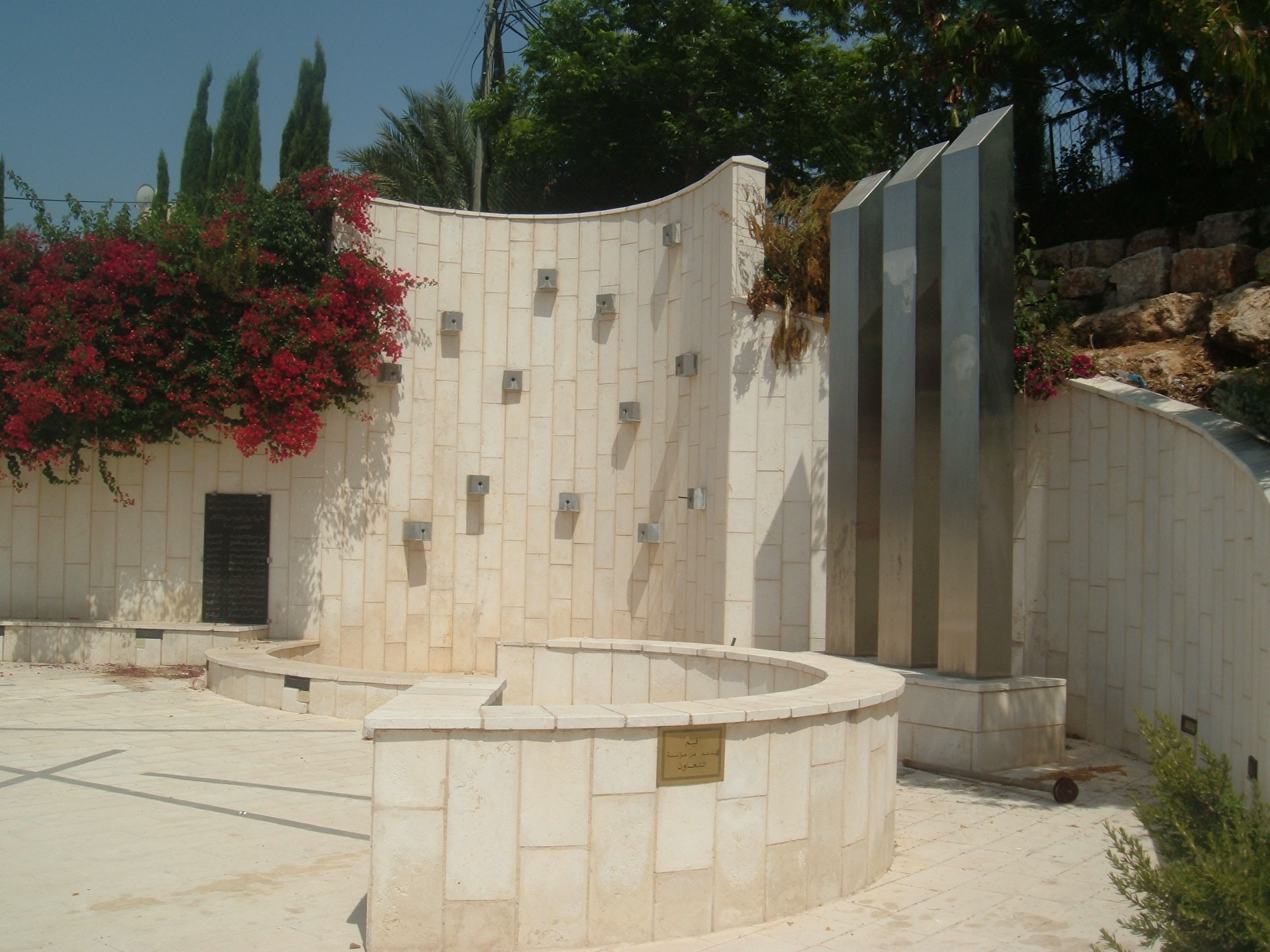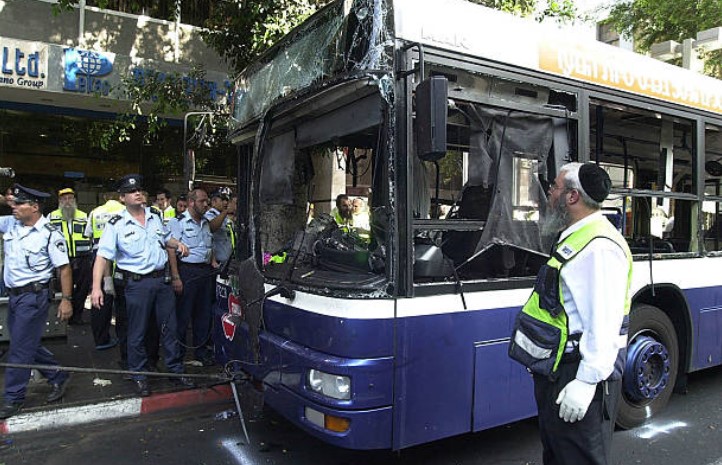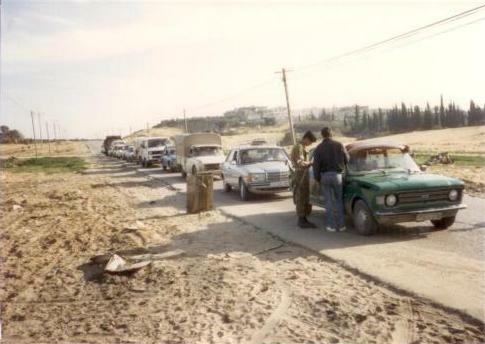|
Israel Border Police
The Israel Border Police ( he, מִשְׁמַר הַגְּבוּל, Mišmar Ha-Gvul) is the gendarmerie and border security branch of the Israel National Police. It is also commonly known by its Hebrew abbreviation Magav (), meaning border guard; its members are colloquially known as ''magavnikim'' (; singular ''magavnik''). Border Guard is often used as the official name of the Israel Border Police in English. While its main task is securing Israel's borders, it has also been deployed in assisting the Israel Defense Forces, and for counter-terrorism and law enforcement operations in the West Bank, as well as in Jerusalem. The Israeli Border Police is known to include many soldiers from minority backgrounds, being a particularly popular choice with Druze recruits, but also includes many soldiers from Circassian, Arab Christian and Bedouin background.Arab-Israeli Military Forces in an Era of Asymmetric Wars, Anthony H. Cordesman, Greenwood Publishing Group, 1 January 2006, page ... [...More Info...] [...Related Items...] OR: [Wikipedia] [Google] [Baidu] |
Frontier Corps
The Frontier Corps ( ur, , reporting name: FC), are a group of paramilitary forces of Pakistan, operating in the provinces of Balochistan (Pakistan), Balochistan and Khyber Pakhtunkhwa, to maintain law and order while overseeing the country's borders with Afghanistan and Iran. There are four Frontier Corps: Frontier Corps Khyber Pakhtunkhwa (North), FC KPK (North) and Frontier Corps Khyber Pakhtunkhwa (South), FC KPK (South) stationed in Khyber Pakhtunkhwa province (formed from the previously named North-West Frontier Province and the Federally Administered Tribal Areas), and Frontier Corps Balochistan (North), FC Balochistan (North) and Frontier Corps Balochistan (South), FC Balochistan (South) stationed in Balochistan, Pakistan, Balochistan province. Each Corps is headed by a wikt:secondment, seconded inspector general, who is a Pakistan Army officer of at least major-general rank, although the force itself is officially under the jurisdiction of the Ministry of Interior (Pa ... [...More Info...] [...Related Items...] OR: [Wikipedia] [Google] [Baidu] |
Fedayeen
Fedayeen ( ar, فِدائيّين ''fidāʼīyīn'' "self-sacrificers") is an Arabic term used to refer to various military groups willing to sacrifice themselves for a larger campaign. Etymology The term ''fedayi'' is derived from Arabic: ''fidā'īyūn'' , literally meaning: "those who sacrifice themselves". Per country Armenia Armenian fedayi groups acted as irregular militia troops to defend their lands during the Hamidian massacres and the CUP's genocidal policies. Egypt During the 1940s, groups of Egyptian civilians formed ''fedayeen'' groups to contest the British occupation of Egypt, which by then was limited to the region against the Suez Canal. The British Army had established numerous military outposts around the canal zone, which many Egyptians viewed as a violation of their national sovereignty. This opposition was not supported by the Egyptian government, though these ''fedayeen'' groups held broad support among the general public in Egypt. In 1951 "mobs o ... [...More Info...] [...Related Items...] OR: [Wikipedia] [Google] [Baidu] |
October Riots
The October 2000 protests, also known as October 2000 events, were a series of protests in Arab villages in northern Israel in October 2000 that turned violent, escalating into rioting by Israeli Arabs, which led to counter-rioting by Israeli Jews and clashes with the Israel Police and ending in the deaths of 13 Arab demonstrators and 1 Israeli Jew.Dan Rabinowitz'October 2000, revisited,'Haaretz 19 October, 2004 The Or Commission was established to investigate the police response to the rioting. Israeli media outlets refer to the episode as ''אירועי אוקטובר 2000'' - the "October 2000 events" while the Arab community refers to it as the "October ignition" (). Background In September 2000, tensions between the police and Israel's Arab citizens rose. On September 12, Israel Police Northern District Commander Alik Ron requested an investigation of Hadash MK Mohammad Barakeh for inciting violence against police. At a meeting of the High Follow-up Committee for Arab ci ... [...More Info...] [...Related Items...] OR: [Wikipedia] [Google] [Baidu] |
Yamam
The Yamam ( he, ימ"מ, an acronym for ''Centralized Special Unit'' , ''Yeḥida Merkazit Meyuḥedet''), also called in Hebrew and Israel's National Counter Terror Unit (I.N.C.T.U.) in English, is Israel's national counter-terrorism unit, one of four special units of the Israel Border Police. The Yamam is capable of both hostage-rescue operations and offensive take-over raids against terrorist targets in civilian areas. Besides military and counter-terrorism duties, it also performs SWAT duties and undercover police work. History The Yamam was established in late 1974 after the Ma'alot massacre, where a failed rescue operation by special forces units resulted in the murder of 21 schoolchildren before the hostage takers were killed. Since hostage rescue tactics in friendly territory differ from those used in hostile areas, it was decided to establish an elite civilian force which develops and practices a special CQB (Close Quarters Battles) doctrine for counter-terrorism o ... [...More Info...] [...Related Items...] OR: [Wikipedia] [Google] [Baidu] |
Counter-terrorism
Counterterrorism (also spelled counter-terrorism), also known as anti-terrorism, incorporates the practices, military tactics, techniques, and strategies that governments, law enforcement, business, and intelligence agencies use to combat or eliminate terrorism. Counterterrorism strategies are a government's motivation to use the instruments of national power to defeat terrorists, the organizations they maintain, and the networks they contain. If definitions of terrorism are part of a broader insurgency, counterterrorism may employ counterinsurgency measures. The United States Armed Forces uses the term foreign internal defense for programs that support other countries' attempts to suppress insurgency, lawlessness, or subversion, or to reduce the conditions under which threats to national security may develop. History The first counter-terrorism body formed was the Special Irish Branch of the Metropolitan Police, later renamed the Special Branch after it expanded its scope ... [...More Info...] [...Related Items...] OR: [Wikipedia] [Google] [Baidu] |
Second Intifada
The Second Intifada ( ar, الانتفاضة الثانية, ; he, האינתיפאדה השנייה, ), also known as the Al-Aqsa Intifada ( ar, انتفاضة الأقصى, label=none, '), was a major Palestinian uprising against Israel. The general triggers for the unrest are speculated to have been centred around the failure of the 2000 Camp David Summit, which was expected to reach a final agreement on the Israeli–Palestinian peace process in July 2000. Outbreaks of violence began in September 2000, after Ariel Sharon, then the Israeli opposition leader, made a provocative visit to the Temple Mount in Jerusalem; The visit itself was peaceful, but, as anticipated, sparked protests and riots that Israeli police put down with rubber bullets and tear gas. High numbers of casualties were caused among civilians as well as combatants. Israeli forces engaged in gunfire, targeted killings, and tank and aerial attacks, while the Palestinians engaged in suicide bombings, g ... [...More Info...] [...Related Items...] OR: [Wikipedia] [Google] [Baidu] |
First Intifada
The First Intifada, or First Palestinian Intifada (also known simply as the intifada or intifadah),The word ''intifada'' () is an Arabic word meaning "uprising". Its strict Arabic transliteration is '. was a sustained series of Palestinian protests and violent riots in the West Bank, Gaza Strip, and within Israel. The protests were against the Israeli occupation of the West Bank and Gaza that had begun twenty years prior, in 1967. Lockman; Beinin (1989), p.&nbs5./ref> The intifada lasted from December 1987 until the Madrid Conference in 1991, though some date its conclusion to 1993, with the signing of the Oslo Accords. The intifada began on 9 December 1987, in the Jabalia refugee camp after an Israeli Defense Forces' (IDF) truck collided with a civilian car, killing four Palestinian workers, three of whom were from the Jabalia refugee camp.Michael Omer-MaThe accident that sparked an Intifada 12/04/2011 Palestinians charged that the collision was a deliberate response fo ... [...More Info...] [...Related Items...] OR: [Wikipedia] [Google] [Baidu] |
Gaza Strip
The Gaza Strip (;The New Oxford Dictionary of English (1998) – p.761 "Gaza Strip /'gɑːzə/ a strip of territory under the control of the Palestinian National Authority and Hamas, on the SE Mediterranean coast including the town of Gaza...". ar, قِطَاعُ غَزَّةَ ' , he, רצועת עזה, ), or simply Gaza, is a State of Palestine, Palestinian Enclave and exclave, exclave on the eastern coast of the Mediterranean Sea. The smaller of the two Palestinian territories, it borders Egypt on the southwest for and Israel on the east and north along a border. Together, the Gaza Strip and the West Bank make up the State of Palestine, while being under Israeli-occupied territories, Israeli military occupation since 1967. The territories of Gaza and the West Bank are separated from each other by Israeli territory. Both fell under the jurisdiction of the Palestinian National Authority, Palestinian Authority, but the Strip is governed by Hamas, a militant, fundamentali ... [...More Info...] [...Related Items...] OR: [Wikipedia] [Google] [Baidu] |
Six-Day War
The Six-Day War (, ; ar, النكسة, , or ) or June War, also known as the 1967 Arab–Israeli War or Third Arab–Israeli War, was fought between Israel and a coalition of Arab world, Arab states (primarily United Arab Republic, Egypt, Syria, and Jordan) from 5 to 10 June 1967. Escalated hostilities broke out amid poor relations between Israel and its Arab neighbours following the 1949 Armistice Agreements, which were signed at the end of the 1948 Arab–Israeli War, First Arab–Israeli War. Earlier, in 1956, regional tensions over the Straits of Tiran escalated in what became known as the Suez Crisis, when Israel invaded Egypt over the Israeli passage through the Suez Canal and Straits of Tiran, Egyptian closure of maritime passageways to Israeli shipping, ultimately resulting in the re-opening of the Straits of Tiran to Israel as well as the deployment of the United Nations Emergency Force (UNEF) along the Borders of Israel#Border with Egypt, Egypt–Israel border. In ... [...More Info...] [...Related Items...] OR: [Wikipedia] [Google] [Baidu] |
Israeli Arab
The Arab citizens of Israel are the largest ethnic minority in the country. They comprise a hybrid community of Israeli citizens with a heritage of Palestinian citizenship, mixed religions (Muslim, Christian or Druze), bilingual in Arabic and Hebrew, and with varying social identities. Self-identification as Palestinian citizens of Israel has sharpened in recent years, alongside distinct identities including Galilee and Negev Bedouin, the Druze people, and Arab Christians and Arab Muslims who do not identify as Palestinians. In Arabic, commonly used terms to refer to Israel's Arab population include 48-Arab ( ar, عرب 48, Arab Thamaniya Wa-Arba'in, label=none) and 48-Palestinian (). Since the Nakba, the Palestinians that have remained within Israel's 1948 borders have been colloquially known as "48-Arabs". In Israel itself, Arab citizens are commonly referred to as Israeli-Arabs or simply as ''Arabs''; international media often uses the term Arab-Israeli to distinguish Arab ... [...More Info...] [...Related Items...] OR: [Wikipedia] [Google] [Baidu] |
Kafr Qasim Massacre
The Kafr Qasim massacre took place in the Israeli Arab village of Kafr Qasim situated on the Green Line, at that time, the de facto border between Israel and the Jordanian West Bank on October 29, 1956. It was carried out by the Israel Border Police (''Magav''), who killed Arab civilians returning from work during a curfew of which they were unaware, imposed earlier in the day on the eve of the Sinai War. In total 48 people died, of which 19 were men, 6 were women and 23 were children aged 8–17. Arab sources usually give the death toll as 49, as they include the unborn child of one of the women. The border policemen who were involved in the shooting were brought to trial and found guilty and sentenced to prison terms, but all received pardons and were released in a year. The brigade commander was sentenced to pay the symbolic fine of 10 prutot (old Israeli cents). The Israeli court found that the command to kill civilians was “blatantly illegal”. Issachar (Yissachar) "Y ... [...More Info...] [...Related Items...] OR: [Wikipedia] [Google] [Baidu] |










